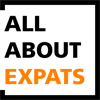In this Article
Recognised Sponsor of the IND
As a recognised sponsor of the IND the organization is allowed to hire highly skilled migrants.
The Immigration and Naturalisation Service (IND) has defined recognised sponsors (as pertaining to Dutch businesses) as reliable partners that are trusted with a special status from the Dutch government.
This special status not only allows the business to serve as residence permit sponsors for highly skilled migrants, but it permits the business to fast-track the application procedures with IND.
This article will solely focus on the application steps and requirements for Dutch businesses.
Below we break down the steps to requirements, application procedures, benefits, and costs of becoming a recognised sponsor of the IND and obligations for being a recognised sponsor.
We also discuss alternatives for businesses that want to hire international talent without becoming a recognised sponsor.
Application Process to Become a Recognised Sponsor
The application procedure for recognised sponsor can be divided into two groups: a relatively simple procedure for companies that have been in existence for more than 3 years and a difficult and lengthy procedure for companies that have been in existence for less than 1.5 years.
Despite the IND having separate procedures depending on the existence of the company, there are a set number of general requirements that all businesses (regardless of length of existence) must meet.
These prerequisites include being registered in the Commercial Register in the Netherlands (in Dutch: Handelsregister) and following the Code of Conduct pertinent to your organization. The organization should also provide the annual figures, verified by an independent party, for the past 3 years.
To see the updated general requirements for 2024, visit the IND.
Instruction video of the Immigration and Naturalisation Service (IND)
Under Three Years of Business in the Netherlands
For companies that have been in existence for under 3 years, the IND may decide that the company must follow a more difficult and lengthy procedure. This is the case when IND doubts the continuity and solvency of the business.
When this is the case, the business must present a business plan along with the other application requirements. The application procedure can take up to 6 months.
The application procedure for these businesses is carefully assessed by the Netherlands Enterprise Agency (RVO) and not by the IND. The RVO assesses the stability and solvency of the company based on a points system outlined below.
If the businesses achieves sufficient points a positive recommendation from RVO follows. The company then goes on to become a recognised sponsor.
A total of 100 points can be achieved. A minimum of 50 points is sufficient for a positive advice.
Before the RVO starts to assess the application, the RVO first checks if:
For companies that have experienced stakeholder takeovers, moratoriums, or bankruptcy, the company will have to present documentation on the case. If the business cannot properly substantiate what happened, the RVO will not proceed with the full assessment.
Over 3 Years of Business in the Netherlands
Companies that have been in existence for more than three years can be recognised as a sponsor by the Netherlands Enterprise Agency (RVO) without assessment.
Although these companies can forego the RVO assessment, they must meet the following conditions:
Normally, the IND can make a decision on the application for these businesses within four weeks of submission.
However, the legal decision period is three months.
Required Documents
The documents your company will be required to submit can differ based on the maturity of the business. Notably, if the business has more than 3 years of active business in the Netherlands, you will be required to submit annual accounts, including a profit and loss statement and a balance sheet for the past three years.
If your company has been in business for more than 1.5 years but less than three years, documents could include annual accounts, including a profit and loss statement and a balance sheet, along with a declaration of compliance with fiscal obligations.
Below we break down other specific documents that will be required when the business needs to first be assessed by RVO for continuity and solvency as requested by the IND.
| Papers | Explanation | Points RVO |
|---|---|---|
| Business plan | Product/service: characteristics, application, extent product/service respond to general market needs, unique selling points. | Max. 15 points |
| Market analysis: potential customers, competitors, entry barriers, co-operation, risks, pricing policy, marketing/promotion | Max. 25 points | |
| Organization | Is there a clear and adequate organizational structure of the company in the Netherlands? Does the directors / owners of the company have the right competences in the field of entrepreneurship, management and the product of service? | Max. 20 points |
| Financial plan | Plan must be prepared by an independent party and must contain the following elements: | |
| Balance sheet (Value of assets) less than < € 50,000 (0 points) between € 50,000 and € 250,000 (max. 10 points) more than € 250,000 (max. 15 points) | Max. 15 points | |
| Turnover forecast (Annually) less than € 125,000 (0 points) between € 125,000 – € 250,000 (3 points) between € 250,000 – € 500,000 (7 points) more than € 500,000 (10 points) | Max. 10 points | |
| Liquidity forecast Must be positive within 3 years | Max. 15 points |
Advantages of recognition as sponsor
The main benefit of becoming an recognised sponsor of the IND is that your business is now allowed to hire highly skiled migrants.
Additionally, as a recognised sponsor your business benefits from:
Application Costs Recognition as Sponsor
As of 2024, the IND application fee for businesses applying for IND recognised sponsor status is € 4560,00.
However, if your business has no more than 50 employees, your application costs are € 2279,00.
When you initiate the process of becoming an IND recognised sponsor, your business will receive a letter explaining how you can pay.
Obligations as Recognised Sponsor
Once your business becomes an IND recognised sponsor, the work is not over. To remain in good standing with the IND as a recognised sponsor, your business must always comply with the following legal obligations:
Obligation to provide information
A recognised sponsor must notify the IND of changes that have consequences for the residence permit of the registered highly skilled migrants or the recognition as a sponsor. The IND must be notified of a change mostly within 4 weeks.
Changes that IND should be notified about, include:
Obligation to keep and retain records
As pertaining to record keeping, the IND requires that your business meticulously retains the details of all your highly skilled migrants on staff.
For example:
Even if you no longer function as a recognised sponsor for the highly skilled migrant employee, you must still retain the relevant details and documents for a period of 5 years. In case the IND ask for this information, the recognised sponsor must be able to show this information.
Obligation to dutifully recruit
Finally, once you become an IND recognised sponsor, your business has a responsibility to uphold the standards and set requirements for employees being hired as highly skilled migrants.
A recognised sponsor must also inform and keep the highly skilled migrant employees updated about the admission and residence conditions and other regulations.
Breaking Obligations and Noncompliance
The IND can check at any time whether your organization complies with the rules, for example by requesting information from your organization. If you do not comply with the rules, the IND can take a number of measures.
Suspension or withdrawal of recognition
The IND can suspend the recognised sponsor as a recognised sponsor. During the suspension, the IND will investigate whether the organization still meets the conditions for recognition.
If the organization does not comply with the rules several times or no longer meets the conditions for recognition, the IND can withdraw the recognition. The IND can then refuse the organization as a recognised sponsor for 5 years.
Withdrawal of the residence permits
In the event of suspension or withdrawal of recognition, the IND can withdraw the residence permit of the highly skilled migrants who are employed by the suspended sponsor.
Warning and governmental fine
The first time that the recognised sponsor does not comply with the rules, a warning usually follows. The IND may impose a fine for a subsequent violation.
The amount of the fine depends, among other things, on the seriousness of the violation and the number of violations. In the case of serious violations, the IND can also immediately impose a fine, without prior warning.
Declaration of a criminal offense
The IND is obliged to report if there is a reasonable suspicion of an offense.
For example, if the organization has deliberately provided incorrect information. The Public Prosecution Service will then determine whether the organization will be prosecuted. In that case, the organization may be fined or the director sentenced to prison.
Expulsion costs
If the highly skilled migrant can no longer legally reside in the Netherlands, the Dutch government will check whether the highly skilled migrant is leaving the Netherlands. If the highly skilled migrant does not leave on his own initiative, the government can deport him. The IND can recover the costs incurred thereby from the recognised sponsor. This concerns the costs for transport to the airport or border, the flight ticket and the costs of travel documents, such as a replacement passport. The costs can be recuperated for up to 1 year after the organization no longer acts as a sponsor for the highly skilled migrant in question.
Outsourcing Sponsorship and Payrolling
All About Expats is an expert in the expat field and is a recognized sponsor of the IND. Every year, many employers, intermediaries and recruitment agencies use our services to hire highly skilled migrants.
By using our employer of record (EOR) service, organizations no longer need to be concerned about being a recognised sponsor of the IND or any of the associated obligations and administrative duties.
In addition, we can take care of the entire application of your behalf. Also we can take over your immigration process with sending in your highly skilled migrant applications to the IND with our Immigration Service for employers.





